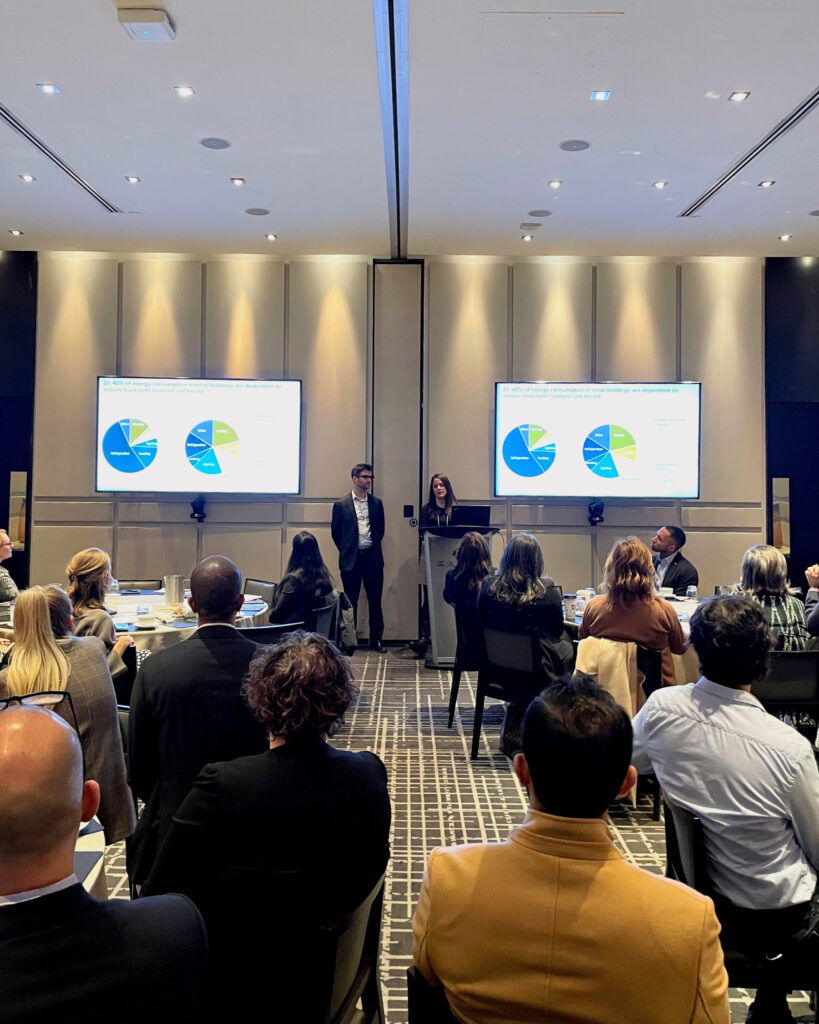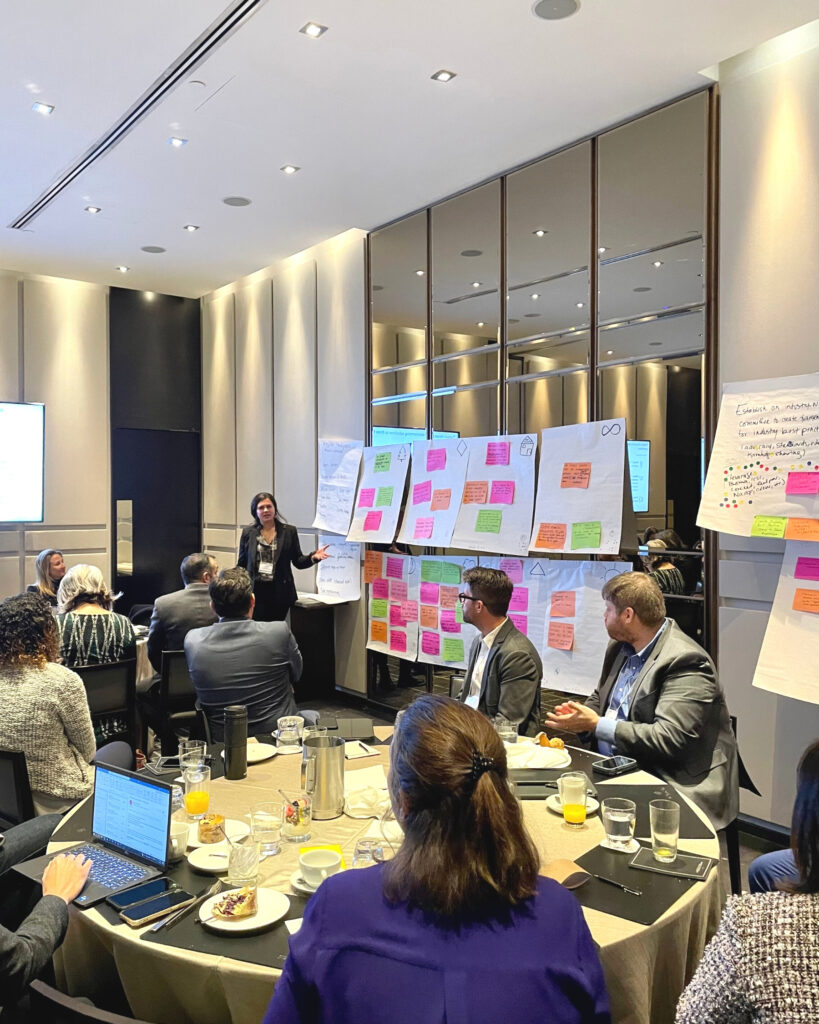Collaborative Climate Action in Commercial Real Estate: Uniting for Net-Zero Emissions
In the commercial real estate sector, collaboration is crucial to achieve emission reduction targets. Melissa Ferrato, Vice President, ESG at First Capital REIT focuses on the battle of decarbonization in retail real estate, where limited control over tenant energy usage is a challenge.
Failure to mitigate climate change is the greatest risk facing humanity over the next decade. The impacts of natural disasters are already increasing in frequency and severity. Moreover, the benefits of robust and early action far surpass the economic costs of inaction. We know that to avoid the worst impacts of climate change, we must limit global warming to 1.5˚C above pre-industrial temperatures by transitioning to a net-zero economy by 2050. For the commercial real estate sector this means halving our emissions by 2030. This cannot be accomplished alone by any one company – we must work together to decarbonize our industry.
Good news is the push for climate action in the commercial real estate industry has reached an unprecedented level. Many property owners and tenants are actively setting meaningful carbon reduction targets and formulating decarbonization plans. Through this process, it becomes evident that a company’s impacts extend beyond directly controlled operations. This is especially true in retail-focused real estate portfolios such as First Capital’s. Retail real estate serves some unique challenges because property owners often have limited control and insight into energy consumption, as retail tenants are separately metered for utility consumption and control the equipment within their spaces. It is estimated that Scope 3 emissions make up more than 90% of a retail property owner’s carbon footprint, with the majority of that being attributed to the tenants’ energy use within the premises. Because of our interlinked operational business models, our climate journeys cannot advance without working together. Collaboration between retail tenants and property owners is key to success.
“It is estimated that Scope 3 emissions make up more than 90% of a retail property owner’s carbon footprint, with the majority of that being attributed to the tenants’ energy use within the premises”
Melissa Ferrato
Recognizing the need to initiate collaboration with our stakeholders, the team at First Capital devised a strategy to engage with national retail tenants and industry peers. The initiative commenced with a half day forum, bringing together key representatives from several national retail companies and property owners to discuss our shared climate goals. Building trust through mutual understanding and alignment of climate goals was considered an essential first step towards ongoing collaboration to develop solutions to the complex challenges we face. The objective of the forum was threefold: build partnerships, foster collaboration and expedite progress on climate action.

The forum involved group break-out sessions to brainstorm solutions to the barriers that retail property owners and tenants face in decarbonizing our industry so that we can turn the conversation to opportunities and action. We will have to overcome some significant challenges to successfully decarbonize retail real estate in Canada. Adapting our current building stock and ensuring new builds are net-zero ready will require an evolved landlord-tenant partnership to enable significant energy reduction and renewable energy sources – from building designs, lease agreements and cost-benefit sharing structures to redefined roles and responsibilities and accounting and reporting methods.
With these challenges, come opportunities to overcome them. Tenants and property owners must share both the costs and incentives associated with decarbonizing our buildings. We must also advance mutual information sharing without introducing repercussions, especially for sharing critical utility and cost data. To succeed, we need to involve the right people from all aspects of our businesses. Reducing carbon is a job for everyone from property managers and store managers, to leasing representatives as well as accountants.
The key collaboration opportunities identified through the forum were:
Creating industry-wide templates: As property owners and tenants, we are all seeking new models and guidance on how to integrate climate considerations into our standard business processes and supporting documents. We can create templates to enable decarbonization for documents we use in key processes and transactions such as lease clauses and schedules, lifecycle cost analysis, utility consumption, savings and forecast reports and more.
Advancing literacy around promising technologies: Everyone has a steep learning curve on how to integrate new technologies that will replace those we know well. Leveraging our significant influence within the Canadian retail sector and its ecosystem of suppliers and advisors, we can quickly expand our knowledge, share pilot project results, distribute innovation risks and influence the market for new technologies.

Connecting with and informing regulators: Regulations can rapidly speed up decarbonization in buildings by shifting leading practices to minimum requirements. Furthermore, regulators, city planners and permitting bodies can incentivize certain types of projects and low carbon technologies. As industry experts, we have an important role to educate decision-makers about viable and cost-effective approaches that save carbon today and tomorrow.
As a result of the forum, an ongoing working group was established to action on these key opportunity areas. Several initiatives are currently underway including collaborative technology pilots, establishing data sharing models and revisiting lease structures to allow for equitable cost sharing of decarbonization projects. A second forum in planned for Fall 2024, at which the working group will report back on progress to date. Through these strengthened relationships, it is already evident that progress on climate goals is being made in a more cohesive and expedited manner.














